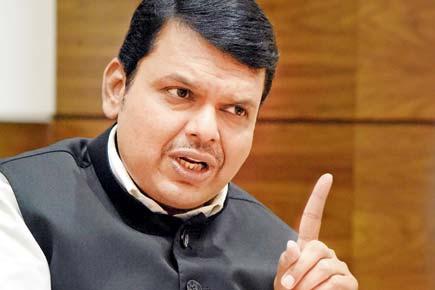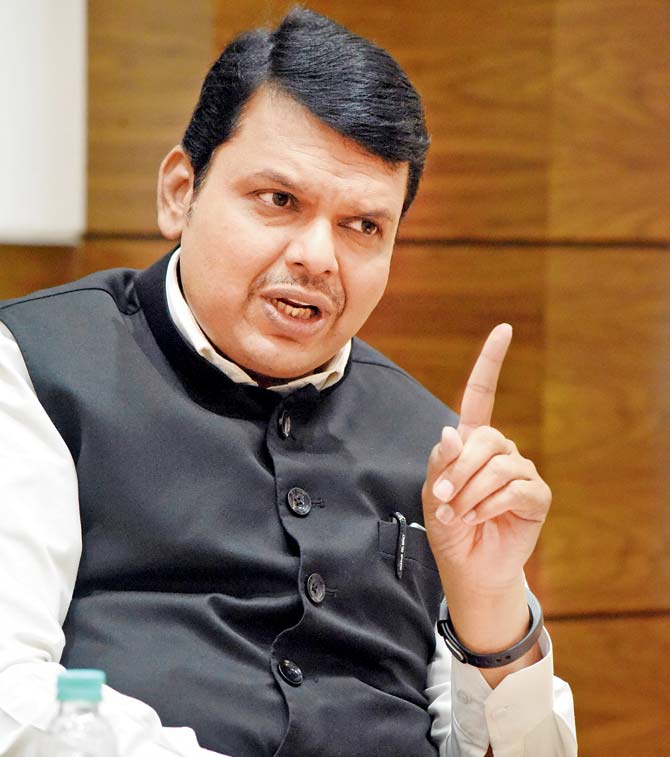The BJP's resounding victory in the civic polls in Maharashtra has further strengthened Chief Minister Devendra Fadnavis, who led his party's campaign from the front after deciding to go alone without tying up with the Shiv Sena, according to political observers


Devendra Fadnavis
ADVERTISEMENT
The BJP's resounding victory in the civic polls in Maharashtra has further strengthened Chief Minister Devendra Fadnavis, who led his party's campaign from the front after deciding to go alone without tying up with the Shiv Sena, according to political observers.
The results, which saw the BJP making massive gains in city corporations and doubling its tally in BMC, also exposed the organisational failures of the Congress-NCP, which were routed even in their strongholds across the state.
Fadnavis, 46, who heads the first BJP-led government in the politically crucial state, single-handedly led the party's campaign criss-crossing the length and breadth of Maharashtra, aggressively projecting "transparency and development" as the central slogan.
Significantly, the BJP's urban sweep came close on the heels of its sterling performance in municipal council
elections in November-January, rubbishing the predictions that the party would do badly in the backdrop of the note ban.
In contrast to the well-crafted BJP campaign, the Congress leaders largely confined themselves to their respective
districts during the run-up, failing to put up a spirited fight by overcoming organisational weaknesses and internal bickering, poll-watchers said. The immediate justification of the party for its poor performance, however, was lack of adequate funds.
But some Congress leaders admitted that the party failed to match the high-octane campaign mounted by the saffron
parties by bringing to the fore the real civic issues.
"The Sena and BJP adopted the Kalyan-Dombivali municipal Corporation (KDMC) formula where the two parties fought a
bitter campaign against each other despite being in power together in the state and eventually sealed a post poll
alliance," they said, requesting anonymity.
The BJP emerged as the largest party in eight of the 10 municipal corporations while finishing a close second to
bellicose ally Shiv Sena in Mumbai.
Rattling the Sena citadel, BJP won 82 seats in BMC, just two less than the estranged saffron ally, but both ended up well short of the magic figure of 114 needed to control the civic body.
Political observers said non-Maharashtrians, who formed the core base of the Congress in Mumbai for long, have
switched sides to the BJP since 2014.
"Even Muslims preferred to vote for Shiv Sena instead of the Congress due to the factional feud and infighting.
The Congress did not present a picture of a fighting unit," said an observer.
The BJP also made inroads into the traditional Congress bastions like the Latur Zilla Parishad and Solapur municipal corporation, the home turf of late Vilasrao Deshmukh and party veteran Sushil Kumar Shinde.
Until 2014, the BJP presence in the city was limited. It used to contest about 65 seats in alliance with the Sena. This time round, according to observers, it began the ground work for the polls more than a year back.
The party entrusted responsibilities to all the 15 legislators and three MPs to strengthen the organisation at
the grassroot.
Over the year, the party highlighted alleged corruption in the civic body in road contracts, which was followed by probe, and nexus between officials and contractors was revealed.
The Congress got completely marginalised after the BJP took over the opposition space in the civic body.
Fadnavis's stress on ushering in transparency and changing the way tenders are floated and awarding of work contracts, which struck a chord with voters, the civic body observers said.
During the campaign, Fadnavis also spoke of how he expedited infrastructure projects like Metro, airport, coastal
roads and bridges. The BJP also vigorously wooed the non-Marathi voters, who constitute about 46 per cent of the total electorate of the sprawling city which has people from across the country as residents, observers said.
Congress leader from Nagpur, Nitin Raut blamed the party's debacle for lack of internal democracy.
"Dictatorial attitude of certain leaders who are not interested in ensuring the party win was responsible," he
said, adding the biggest threat for the Congress in the state is neither the BJP nor the Sena but few leaders within the party itself.
In a dig at the MPCC president Ashok Chavan, he said someone who had the experience of running the state failed to
lead the party to success.
"Instead of learning lessons from the 2014 assembly defeat, congress entrusted the task of running the party to
those who were responsible for the defeat and encouraging factional fued," he added.
 Subscribe today by clicking the link and stay updated with the latest news!" Click here!
Subscribe today by clicking the link and stay updated with the latest news!" Click here!







